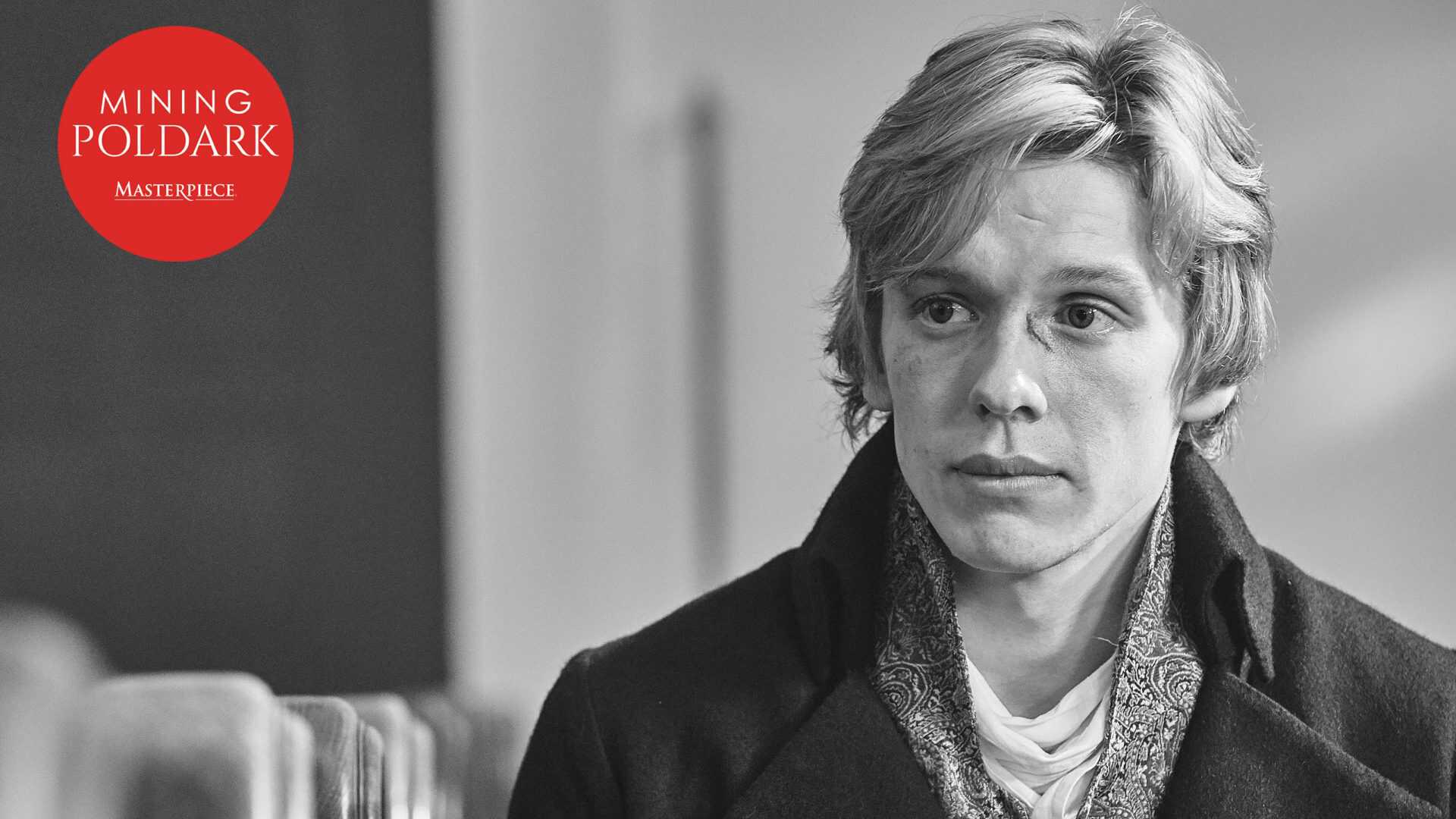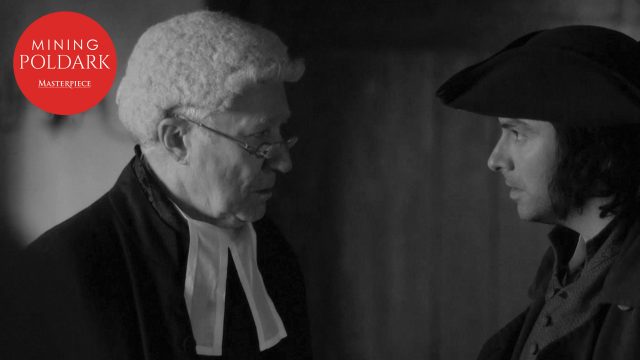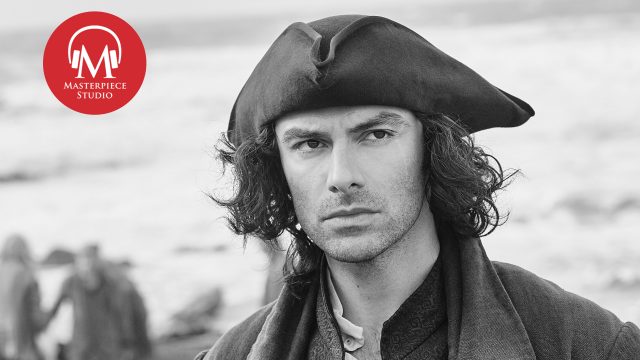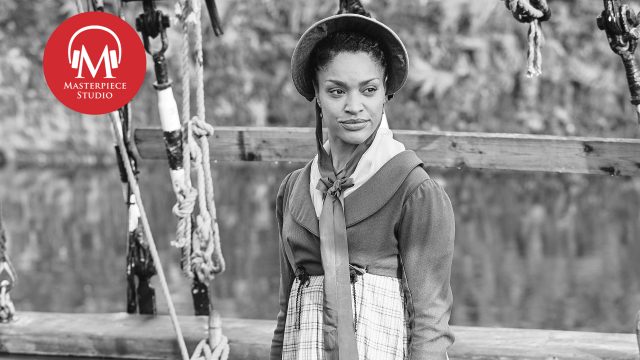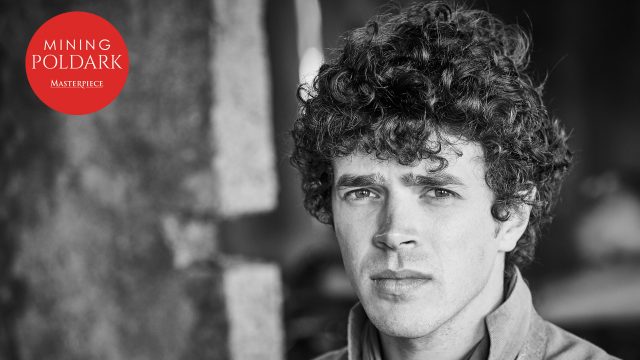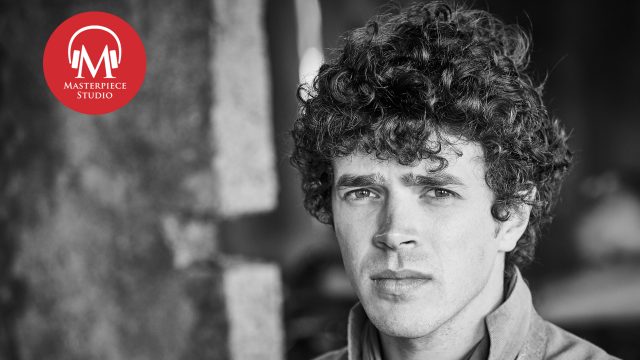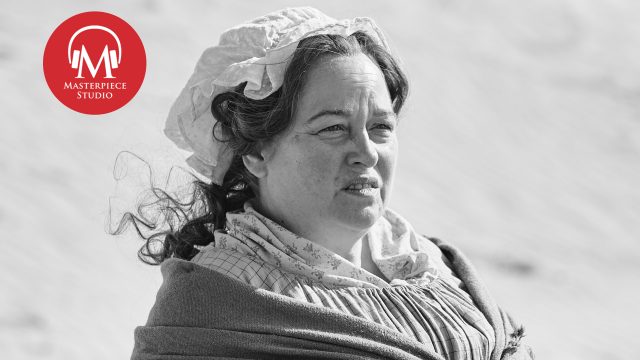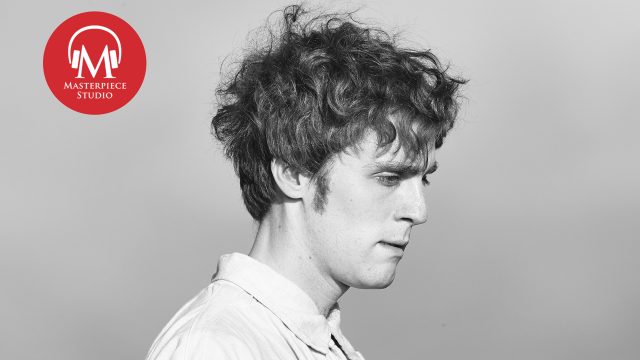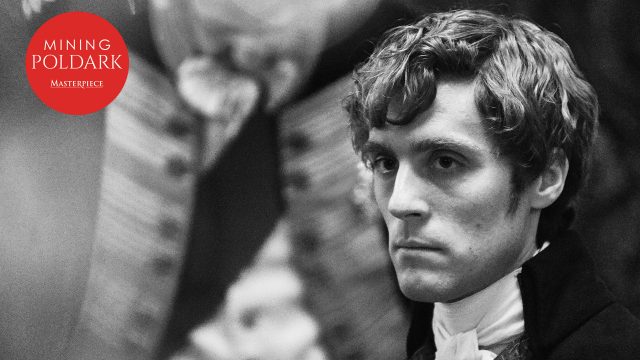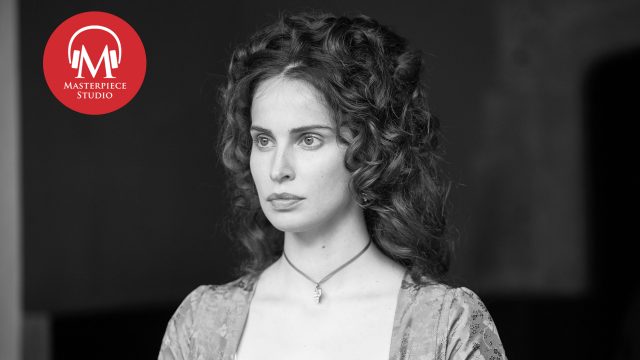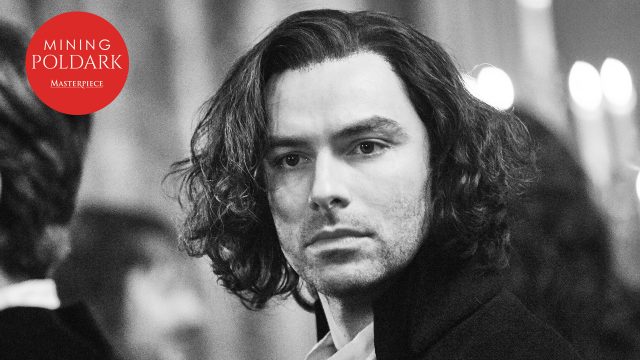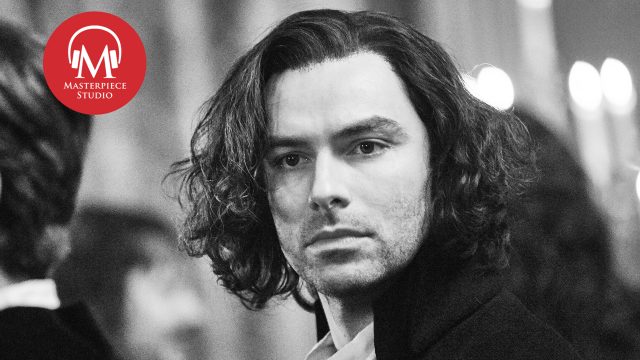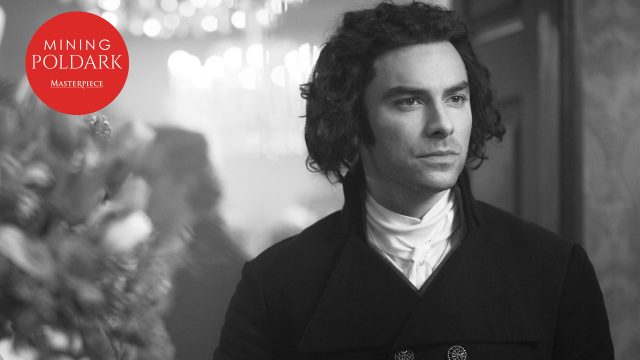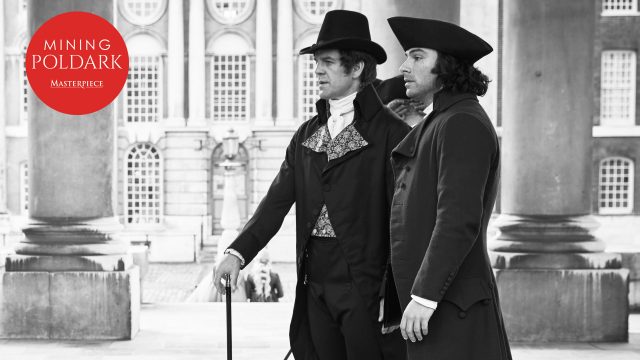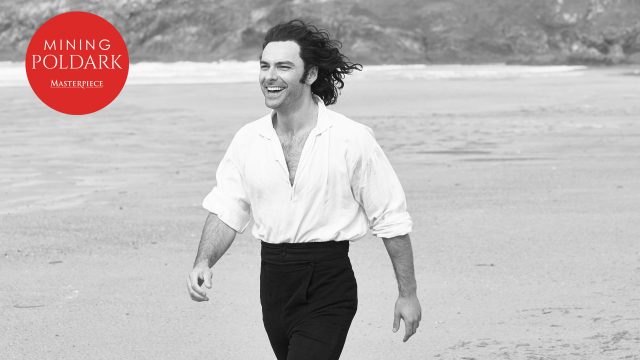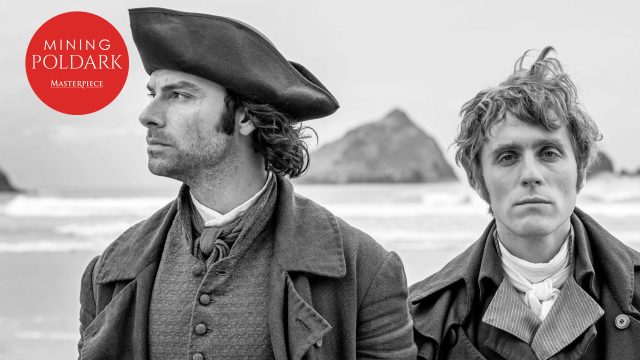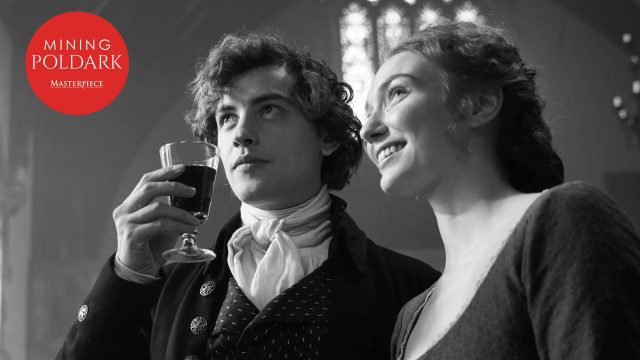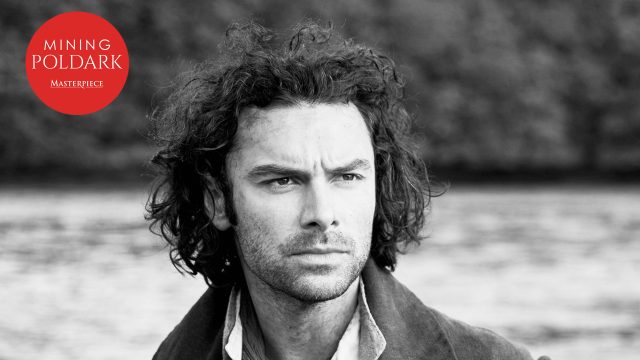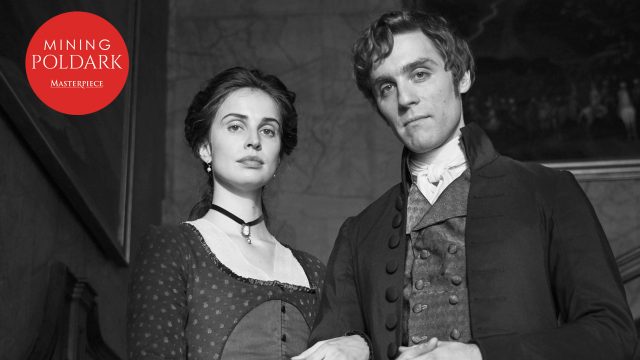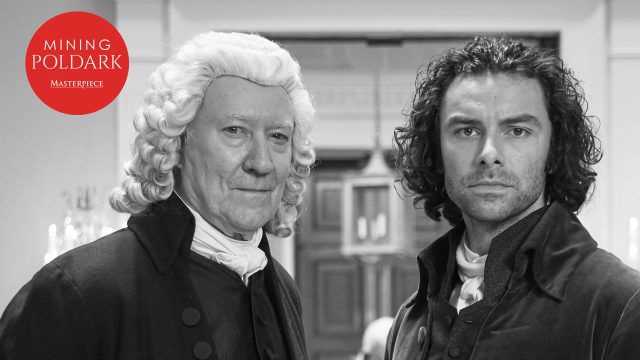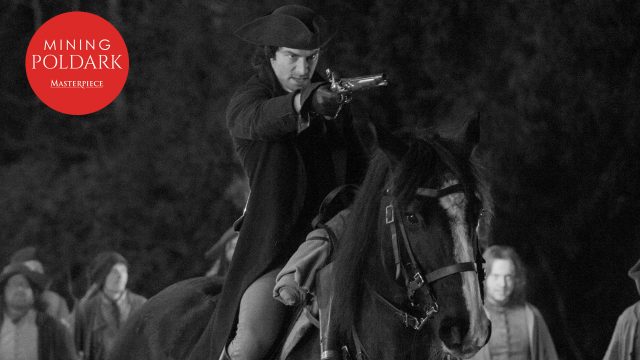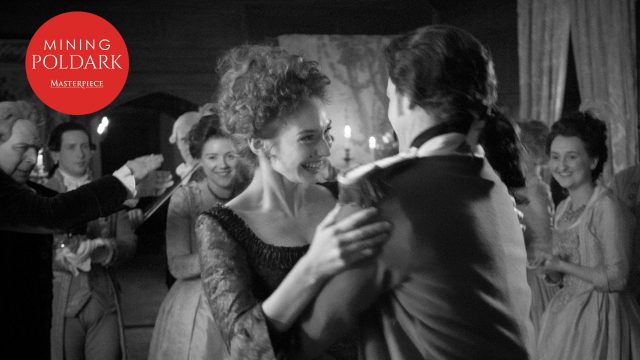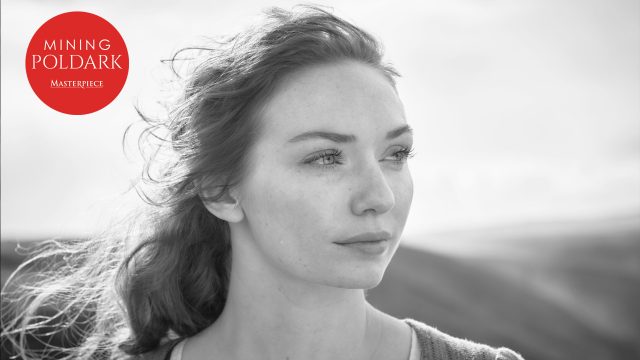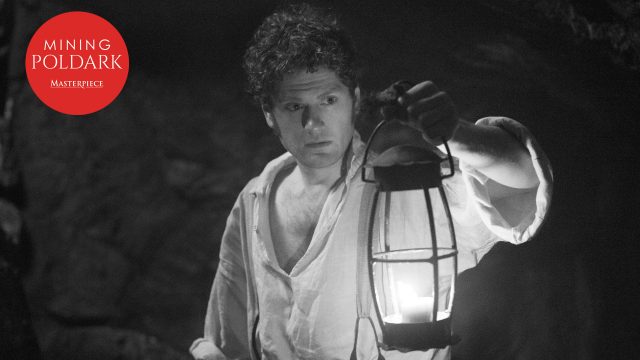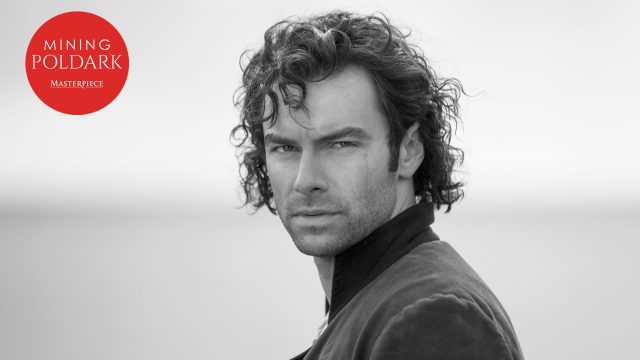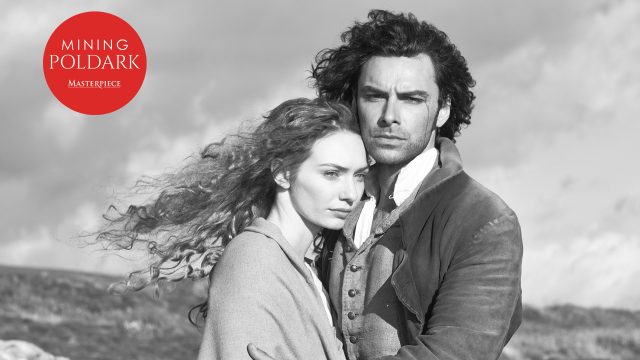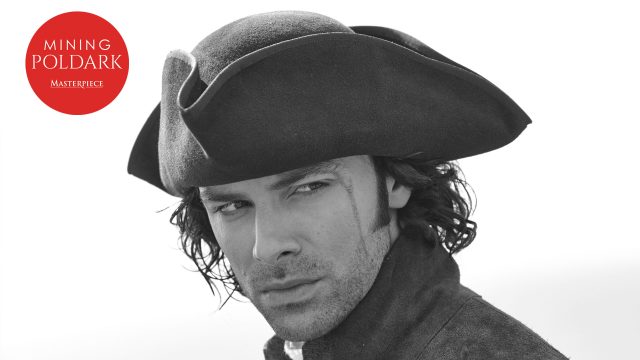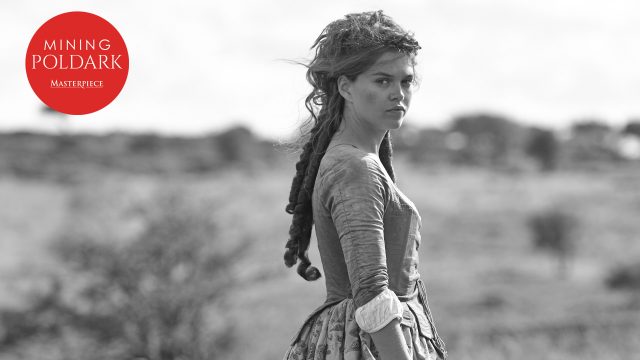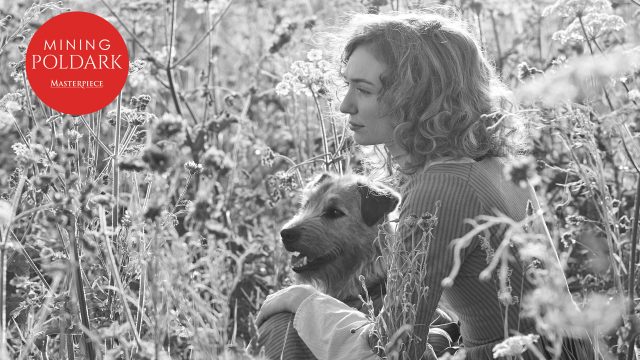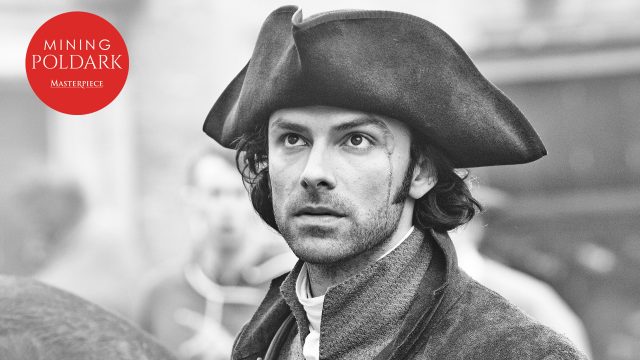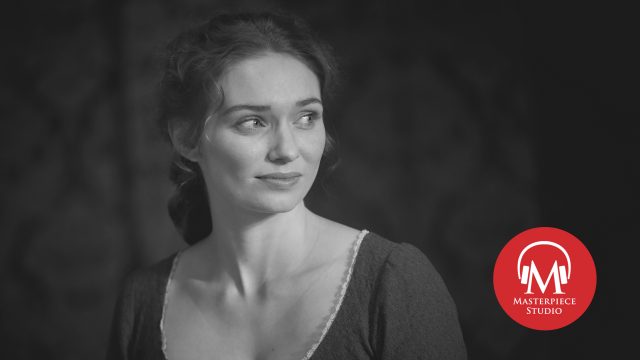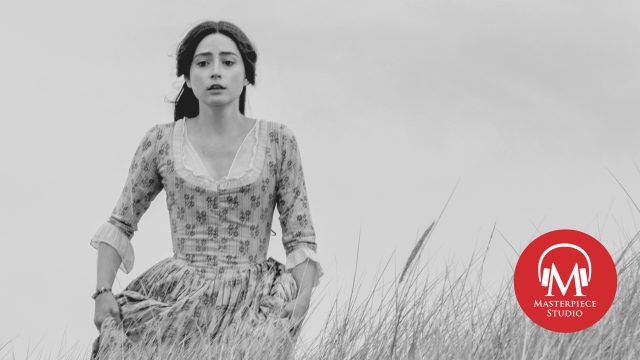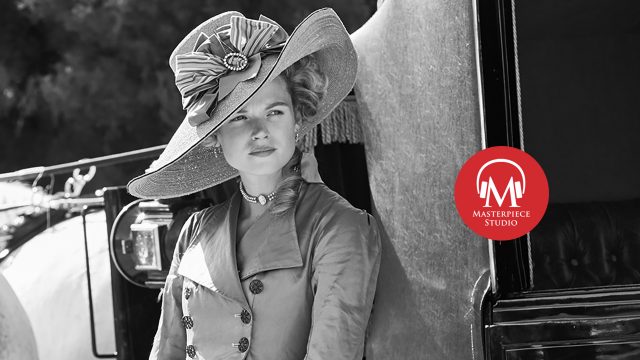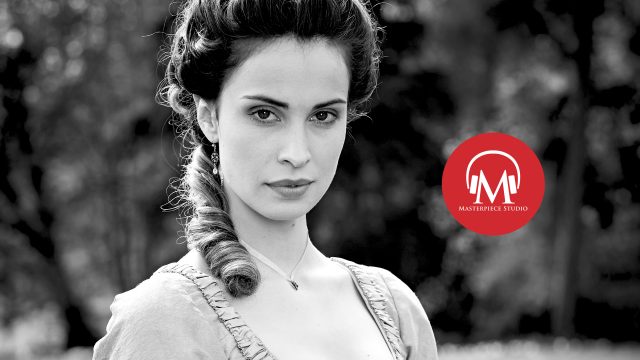The British justice system works its harsh way through Col. Ned Despard’s imagined case of treason, ending in a gruesome public hanging. But it’s not all bad news for our heroes this episode. And in a special treat for dedicated Mining Poldark listeners, Andrew Graham — son of Poldark novelist Winston Graham — joins co-host Barrett Brountas in a frank conversation about Cornwall, Ross and real British history.
Download and subscribe on: iTunes | Spotify| RadioPublic
Transcript
Barrett Brountas Ned is put on trial for trumped-up treason charges, and things don’t look so good.
CLIP
Dwight: There is no doubt in my mind that Colonel Despard is delusional. His actions, his speech, his view of himself and his place in the world clearly indicates that he is not of sound mind. I therefore ask the court to release him and allow him to receive the humane treatment appropriate to his condition, which I will personally undertake to supervise.
Barrett Despite Ross and Dwight’s best efforts, it’s death for the rebellious Colonel, and even Ned’s nobel last minute speechifying, he’s hanged for treason, leaving Ross and Kitty bereft.
CLIP
Ned I hope that falsehood, greed and tyranny will be vanquished and this nation, which I have loved, will one day be a beacon of democracy, freedom, justice and humanity.
Barrett And Geoffrey Charles and Cecily desperately try to escape Sir George’s marital clutches, only to realize the easiest solution is right in front of them.
CLIP
Cecily I wish to declare that it’s barely a day since I gave myself body and soul to Geoffrey Charles Francis Poldark.
Geoffrey Charles: So if you wed her you will always wonder is her first child
mine or yours.
Barrett I’m Barrett Brountas, and this is Mining Poldark, a podcast from MASTERPIECE.
For this sixth episode of the final season of Poldark, I’m thrilled to turn to an exclusive interview I had with Andrew Graham, the son of Poldark novelist Winston Graham. We spoke about his father’s legacy, the enduring magic of Cornwall and how series creator Debbie Horsfield used Winston’s words in the novels still to come to shape this fifth and final season.
Barrett I’m pleased to be joined by Andrew Graham, son of Poldark author Winston Graham. Andrew, welcome.
Andrew Very nice to hear you. Thank you.
Barrett Thank you so much. So let’s jump right in. The time jump between The Angry Tide and The Stranger from the Sea is eleven years. During this fifth season, Debbie Horsfield’s original effort attempts to bridge that gap. How do you think your father would have responded to the plot lines this season?
Andrew I think to answer that, we’re going to have to go back a step and think a little bit about how I, from the viewpoint of the literary estate, had to think about it, because I think that probably, you know, my father’s not alive, so I couldn’t ask him. But I had to try and ask the question that you’ve just asked, really, of myself. And what it seemed to us was that there actually there’s quite a lot that’s already in place. I mean, if you start with The Stranger from the Sea and the subsequent novels, a variety of things happen which pin down, make it impossible for other things to take place. In the earlier period, you know, some people are alive, some people are dead, and that fixes certain things. And then you go back to the end of The Angry Tide and the very tragic, awful death of Elizabeth, and there’s a set of things that are in train from that as well. And then there are one or two extra clues. My father wrote things about what was happening to Ross and Demelza in The Stranger from the Sea. And so that pins things down. So you’ve got things coming forwards from The Angry Tide, things coming backwards from The Stranger from the Sea, and then in the middle of all this is something which I think my father would have been incredibly keen on, on which I think Debbie Horsfield has treated really beautifully, which is this the actual historical events. I mean, my father did extraordinary research for the novels and Debbie has done the same. So a lot of the things that happen in the novels are based on real events, real characters.
CLIP
Ross May I introduce my battlefield saviour – and your husband’s most esteemed surgeon! Dr. Dwight Enys. Mrs. Catherine Despard.
Kitty I’m honoured to meet you, sir.
Dwight The honour’s entirely mine, ma’am. Knowing your husband, you’re already assured of my admiration!
Andrew And I think that those, that three-way pin down, if I can put it like that, would have made my father feel that if anybody could have pulled this off, Debbie had succeeded.
Barrett It’s wonderful. I’m so glad to hear that. And so was history a particular interest of your father’s, and how do you think he came to begin including historical events in The Stranger from the Sea onwards, where he hadn’t really had so much historical figures in the earlier books?
Andrew I think the in his mind, there wouldn’t have been the disjunction that you’ve implied, because I think what happened was that before he ever wrote a Poldark, he’d written about another, he’d already written some eight, nine, ten novels. And I think what happened was he was then in the Second World War as a Coast Guard, and he was sitting there meeting people from Cornwall and really engaging in conversation with him. In the cliffs around him where this Coast Guard hut was located, they had the old mine workings. And I think it was a combination of him beginning to be interested in the surroundings and the people telling him about what had happened in the past. And that’s where his passion for the history began. And so even in all those early novels, the first four that take us through to that much happening, the first of all that he published was absolutely accurate accounts of what happens with the emergence of banking in this period. The what’s happening to the fishing, what’s happening to mining, what’s happening to the landscape and the farming and the rise of new money. So he had already done all that historical research. And indeed, I think, you know, some of the figures who appear, some of the banking figures, they are real people in Cornwall at that time. And so when it carries on in the subsequent books in The Stranger from the Sea and afterwards and we go will eventually I mean. But that unfortunately, it doesn’t happen in the pieces being so far being covered in the television series, but actually the final novel goes all the way through to Waterloo. And there there are real figures, but I don’t think it was any separation between the historical authenticity of the earlier books and the historical authenticity of the later books.
Barrett. Yeah, that makes sense. I find it fascinating that there he was serving during the war in Cornwall at this moment where the world is shifting and that’s the time of genesis really, or right after the war of Poldark where there are also you know real shifts. There’s the spirit of that coming through that moment in history that he was living in. I think must have somehow impacted the series.
Andrew I think that’s absolutely right. I mean, I think that there was a sense in Britain at the second and during this and after the second World War that they just really didn’t want to return to what had been happening in the ’20s and ’30s. And so that was a kind of optimism. And my father says somewhere that if in general his writing seems more touched by the milk of human kindness than by death and destruction, it’s because he feels that he had a life which on the whole was optimistic and moving in the right direction. And that then comes through into the novels. And I think that, you know, and I think that’s what part of their great appeal. I mean, it’s not as if there aren’t some really tough, nasty people and some really awful things that happen. And people are very ill and a lot of people die and the people are caught in these incredibly difficult circumstances. But deep down, people, I think, can read the novels and have a sense of hope. I mean, Ross and Demelza, they keep going, they have a sense of integrity about themselves. Even George Warleggan, this really disagreeable, mean, avaricious banker is obviously incredibly cut up by the death of Elizabeth and it’s clear that he really loved her. And you can you can feel a sense of engagement with George. And I think that, you know, I am very objective about my father’s writing. But I think that when the bad guys are also people you can like, you know, that the writing’s going well.
Barrett Now, you’ve mentioned in a previous interview that your father wrote a letter in October 1980 when he began writing The Stranger from the Sea and that he, quote, ‘Felt stirrings again after four years.’ And then he spent the rest of his life writing Poldark novels in 1981, 82, 84, 1990 and 2002, just a year before his passing. So obviously, his career extends far beyond Poldark. But was Poldark the central story of his life?
Andrew I think I want to, rather surprisingly, say no. I think Poldark was, I think Poldark and Cornwall and my mother were probably the three great loves of his life. But they weren’t, Poldark wasn’t the center of his life because I mean, amazingly, he wrote twelve piled up Poldark novels. But he probably wrote another 30 novels. And I think that what my father was essentially someone who was a storyteller and he was deeply, deeply unhappy when he wasn’t writing. And I mean, you mentioned that, you know, late on in his life, he returned to writing the Poldarks. and wrote wrote a great many. But in that later period, his life, exactly as in the earlier period of his life, he interspersed the Poldark with other novels. I mean, he wrote a book called Stephanie in 1992, Tremor in 1995, The Ugly Sister in 1998. So all the time his keep coming back to Poldark sometimes with very, very long lags, because that family is there and they keep ticking away in his head. But he’s a writer. He’s a writer. That’s what really drove him.
Barrett That’s great. OK. That makes a lot of sense. Now, your sister Rosemond has said that Demelza was partly based on your mother, Jean Williamson, and that your mother, as she said, helped with the details, because she was so observant.
CLIP
Demelza Friends, on behalf of Captain Poldark, who sadly can’t be with us here today, who have gifted this land for the buildin’ of our school, it d’ give me pleasure to lay the first stone an’ ask a blessin’ on our mission, which is: to bring knowledge an’ learnin’ to all.
Barrett What was their literary relationship like between your parents, and what did her sort of observation of detail look like? How did that play out?
Andrew I think it’s probably difficult to overestimate the impact of my mother on all of this. She was the only person with whom he really talked over his novels. He said on one occasion to me that he would never tell anybody the story of a novel because then he’d lost the impetus to tell it. But he, but he told it to my mother, and much, much more than that, my mother would see little things in newspapers and draw them to his attention and say, ‘Winston, what about that?’ So my mother was prodding him and constant. And she also was very much in that sense, she’s very like Demelza. She always won.
Barrett I was thinking that!
Andrew Yes, she wants to be, she’s saying she’s saying to my father, ‘Do this. What about this? What about this?’
CLIP
Zacky An’ were ye reco’nised?
Demelza I don’t think so. I was too far away.
Drake Let’s round up a passel ‘o men an’ head straight f’ Jacka’s.
Zacky Nay, I think we should wait. We’ve no clue what them up to…
Demelza Whether it is our ore they’re shippin’ away.
Drake What else could it be?
Demelza I’ve no wish t’ confront ’em without just cause. Tis better to watch an’ wait.
Drake An’ catch ’em in the act?
Zacky Agreed. So give ’em no sign we suspect ’em.
Drake ‘Specially not that one.
Demelza That’s if she’s involved. An’ so far there’s no proof of it.
Andrew And then as Rosamond, my sister is absolutely correctly said, she would spot whether someone would change their dress, whether the picture on the wall wasn’t quite straight, whether the color of the fabric didn’t match and all the bit of fabric. What were they? What did they eat for lunch? So all of those little tiny details.
Barrett It all comes together to create such a world, not just the characters, but the world building is is a huge part of the appeal.
Andrew Absolutely. The other thing which I didn’t really think about this when I was a young person reading the novels, and I don’t sure that everybody thinks about it now, but, the significance of locating the books in Cornwall with the rise of banking and the rise of mining is that in the late 18th century, Cornwall was absolutely at the forefront of the Industrial Revolution. That’s why the new banks were being set up. That’s why people were making money. That’s why people were beginning to make steam engines.
Barrett Amazing.
Andrew And so it wasn’t just a lost southwest corner of the tip of England. It was a very vibrant part of the country. And I think that adds to the sense of the history and why there’s a battle between old money and new money and between the classes. And because it was where the social fabric was under pressure at the time.
Barrett Let’s hold on a second and take a quick break to hear a word from our sponsors…
Barrett I’ve been lucky enough to have co hosted this podcast with Robin Ellis, who played Ross in the original 1970s adaptation of your father’s novels.
Andrew Yes.
Barrett I understand that your father wasn’t such a big fan of the first season of the show. But I also understand that he came to really cherish Robin’s work and that they even became very good friends. Can you speak to that relationship at all and and the reception of the first season?
Andrew Absolutely. My father’s annoyance with the first series by the BBC was nothing to do with Robin or Angharad or any of the key actors. It was simply that he had done this deal with the BBC and he trusted the BBC and he actually knew the person whom they were going to be using as the scriptwriter. But when the script of the first episode appeared. My father had a pretty strong temper, my father and it absolutely hit the roof because they had changed the character of Demelza and made her look like a cheap woman trust trying to take her knickers off at the drop of a hat. And my father actually tried to cancel the whole contract. But luckily for him and luckily for us, it wasn’t successful.
Barrett Did did sort of they take his feedback and change it or did they say, hang on. Next week, she’s the Demelza, you know, and love. How did they change it?
Andrew A little bit, but nothing like enough. I mean, I think one of the things that has been so beautiful and so pleasing about the second adaptation that Mammoth Screen has done is that they they captured the Ross and Demelza relationship exactly as it is in the books. I think the whole seduction scene between Ross and Demelza is exactly as you did.
CLIP
Ross What is it?
Demelza The dress. It unfastens down the back.
Ross You know what people say of us?
Demelza Yes.
Ross If we behave like this, it will be true.
Demelza Then let it be true.
Andrew One or two people, by the way, being very, very observant have said, I don’t know whether you remember the scene, but in the in the novel and in the TV series, exactly the same, she says, ‘I can’t undo the the buttons, the hooks on the back of my frock on the back.’ And some people have written in saying, ‘But in those days, frocks were done up at the front.’ Now, so I think that’s one bit of artistic license that my father allowed himself. He probably knew they were done up at the front, but he just thought in terms of the depiction of the scene, it needs to be at the back end.
Barrett He was right! Now, obviously, the Poldark story continues well beyond this final season, almost 20 years, in fact. So can you offer our listeners a preview of where Ross and Demelza and all their friends end up in the next two decades? A little teaser.
Andrew I think not. I obviously I can, because I’ve read the books. I mean, I could say this happens and this happens. And this is what what I would prefer to say is that I’m sure you know that I may not quote the exact line, but there’s a line at the beginning of Anna Karenina when it says something like, ‘All happy families are happy in the same way. All unhappy families are unhappy in their own way.’ And what I think my father felt he was doing particularly is as Poldark went on and then on again, he was trying to write something that he thought was actually really difficult. He was trying to write the story of a marriage that continues and his ultimately together happy, despite all its tensions and the frictions between Demelza and Ross. This isn’t a boring happiness. This is an interesting, alive happiness. And I think, you know, you referred to the letter that my that I got from this woman who is a fan. And in it, I think my father said the Poldarks will never end because it will never have a tidy ending and the Poldarks would never end because life’s not like that. But he really engaged with Ross and Demelza and their children living out their life with all the difficulties that we all face when we’re realistic about it. And yet going on loving each other.
Barrett Well, I think you sense that in the series thus far, so I love that that that continues because there’s so much truth in it. There’s a marriage, a long marriage as it can be, something like a dance where they come together and then they absolutely apart and come together in a new way. And so it’s it’s beautiful. And I think that, you know, with all the swashbuckling and adventure and daring do at its heart, is this marriage with between these two very specific, really wonderful, complicated characters, the way they grow together.
Andrew Absolutely.
CLIP
Demelza Judas – I never thought that, poor Ned – poor Kitty… An’ you – what do it mean for you, that your friend was declared traitor? Will your good name suffer?
Ross Do I care?
Demelza No, not now perhaps, but…
Ross If I never see London again it’ll be too soon.
Demelza Did you weep? When he died?
Ross What good would it have done?
Demelza You should not stopper up tears, Ross. You should weep for him. For the better part of him. E’en is’t the better part of you.
Barrett Do you have a favorite Poldark memory, either from the books or from your own experience in the the the world of Poldark from your family? Is there any one memory that you you have that is your favorite?
Andrew I’m not big on one moments. I think life’s too rich to be captured in a single moment. But I could pick out two or three. There’s a totally spectacular shot of when Demelza is really cross with Ross, she has gone down into the onto the beach dressed in a long red dress and is walking through this white surf.
Barrett Oh, fantastic.
Andrew It’s just incredible the sense of frustration, annoyance and the beauty of the world around her and everything. That’s an amazing moment. And another one would be. when I mean, I think the the other thing which, you asked me what goes on in the later novels. And one thing I would be willing to say is the enmity, the really deep enmity between Ross and George that continues. And I think that that that drives the novels right through to the very end. And wow, what reminded me of that was the scene on again on the beach, when Ross and George confront each other.
CLIP
George Well, Ross. My compliments to the Volunteers. I believe they were put to good use today. Oh, did you think you were being summoned to fight the Frenchies? No, it seems Tom Harry got the better of you A little nudge and your muskets protect my grain store. But you humble foot-soldiers must go where your betters decree, I believe.
Ross What else d’you believe, George?
George I believe I have every reason for optimism. I believe I have a devoted wife, a thriving son, a fine estate and a parliamentary career, which has barely begun. What is it you believe, Ross?
Ross That belief is a beautiful thing.
Andrew And it’s just a great, great line.
Barrett Yeah. It’s so loaded because he’s he he at this moment does he is he built realizing that he believed in his marriage, is it too late? Yeah. You know, he has so many things that he could be saying at that moment.
Andrew Absolutely.
Barrett Oh yeah. That’s fantastic. It’s really one of the best of of all. Well, Andrew Graham, it’s been such a delight to talk with you. Thank you so much for bringing your insights and your wonderful stories to our viewers and our listeners. We’re very grateful and for all your work, bringing this story back to our screens, thank you so much.
Andrew Well, I’m absolutely an enormous fan of PBS. The World at the moment needs organizations like PBS and the BBC far, far more than they ever did in the past. So please keep going.
Barrett That was Andrew Graham, son of Poldark creator Winston Graham, in a conversation with me (of course).
Coming up on our penultimate episode ever: Detective Demelza uncovers some troubling news.
CLIP
Demelza This weapons hoard though – is it not some strange? French smugglers…
Ross Or French spies.
Demelza Do you think? What could they intend?
Barrett We’ll investigate with her, next time.
And you can join us in our rewatching adventure here on Mining Poldark by watching the entire series on PBS Passport — a new member benefit from your local PBS station. You can watch select MASTERPIECE titles like Poldark, Downton Abbey or Victoria as a part of the Passport experience. To learn more, visit pbs.org/getpassport.
You can also follow along with us on the the PBS Masterpiece Prime Video Channel, available as an add-on service to your Amazon Prime Membership.
Mining Poldark is hosted by me, Barrett Brountas, with co-host Robin Ellis. We’re produced by Nick Andersen, with help from Robyn Bissette. Meredith Wheeler is our field producer. Tina Tobey-Mack is our sound designer. Susanne Simpson is our executive producer. The executive producer of MASTERPIECE is Rebecca Eaton.
Sponsors for MASTERPIECE on PBS are Viking Cruises, Raymond James and The MASTERPIECE Trust. Poldark is a Mammoth Screen production for BBC, co-produced with MASTERPIECE.
MASTERPIECE Newsletter
Sign up to get the latest news on your favorite dramas and mysteries, as well as exclusive content, video, sweepstakes and more.








